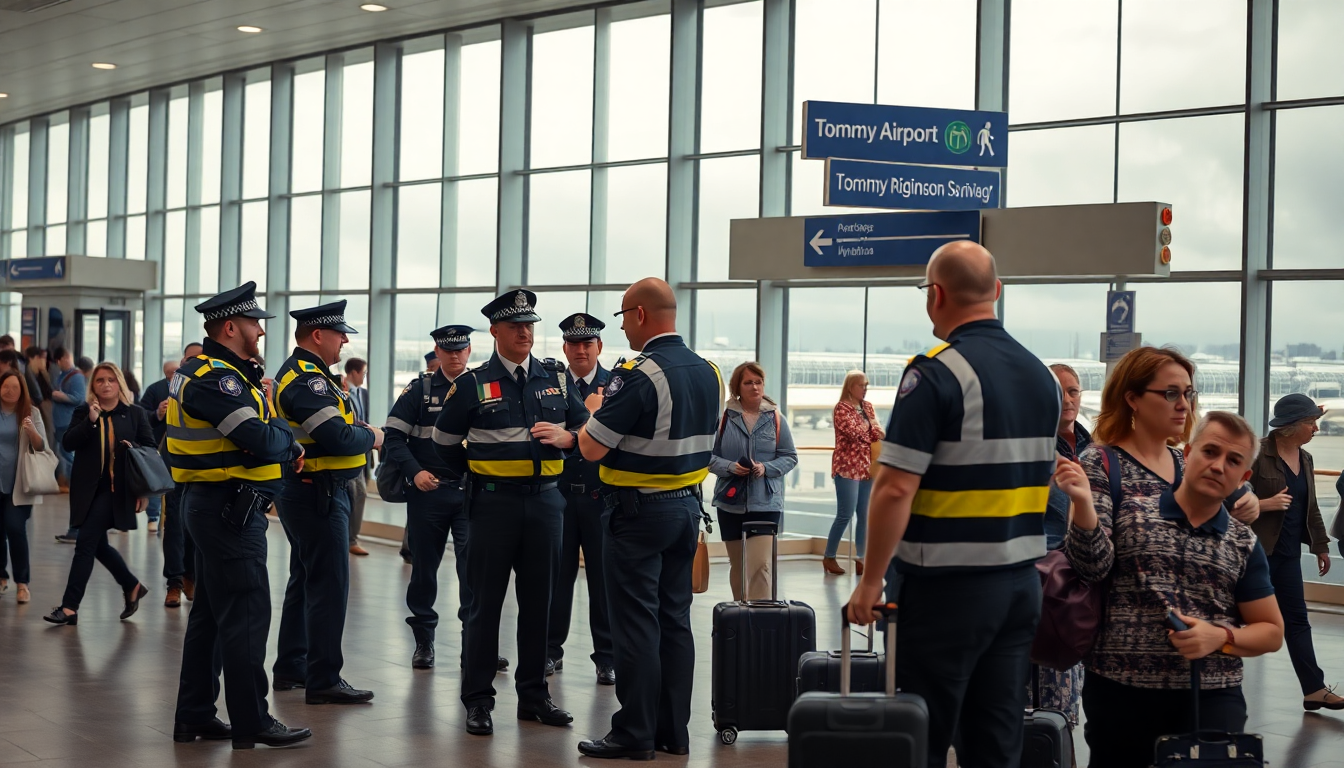Table of Contents
Tommy Robinson, a figure known for his far-right activism and contentious views on immigration, has recently been detained by British Transport Police. This follows an alleged assault that happened last month at St Pancras station in London. His arrest took place at Luton Airport upon returning from a flight from Faro, Portugal, marking a noteworthy turn in a case that’s captured significant media and public attention.
Unpacking the Allegation and Arrest
According to reports, Robinson, whose real name is Stephen Yaxley-Lennon, was taken into custody around 6:30 PM local time after stepping off the plane. He’s being questioned about a serious assault that unfolded at one of London’s busiest railway hubs.
The British Transport Police confirmed they had been looking for Robinson since shortly after the incident on July 29, 2023.
Authorities have stated that he’s being held on suspicion of grievous bodily harm. While the police didn’t officially name him in their announcements, widely circulated social media footage reportedly shows him involved in a confrontation with another individual, who sustained serious injuries that, fortunately, are not believed to be life-threatening.
This incident has reignited discussions about Robinson’s controversial history, including his prior convictions for public order offenses. This latest legal challenge could make his already complicated relationship with the law even messier.
Robinson’s Background and Previous Legal Troubles
Tommy Robinson’s background is filled with legal challenges. In October 2024, he received an 18-month prison sentence for contempt of court after breaching an injunction related to false claims about a Syrian refugee. This conviction is part of a larger narrative that paints him as a divisive figure within UK society.
Earlier this year in May, Robinson was released early from a prior sentence after the high court reduced his term. The ongoing cycle of legal troubles raises questions not just about his future but also about the wider implications of his activism, which often takes a confrontational stance towards immigration and Islam.
Robinson has been labeled by advocacy groups as the UK’s most notorious far-right extremist. His actions have sparked significant debates about the limits of free speech and the responsibilities of individuals who engage in inflammatory rhetoric. How do we balance free speech with the potential for harm?
Public Reaction and Broader Implications
Reactions to Robinson’s arrest have been mixed. Supporters argue that he is being targeted by political correctness and censorship, while critics view him as a dangerous provocateur whose behavior fosters a culture of intolerance and division. The incident at St Pancras station is poised to stir up discussions about the influence of far-right figures in the UK and their societal impact.
As Robinson awaits further questioning, the implications of this arrest will likely unfold, potentially influencing public policy and discussions surrounding extremism in the UK. This case serves as a stark reminder of the broader societal challenges that continue to confront communities across Britain today. What do you think the future holds for the debate on extremism and free speech in the UK?





